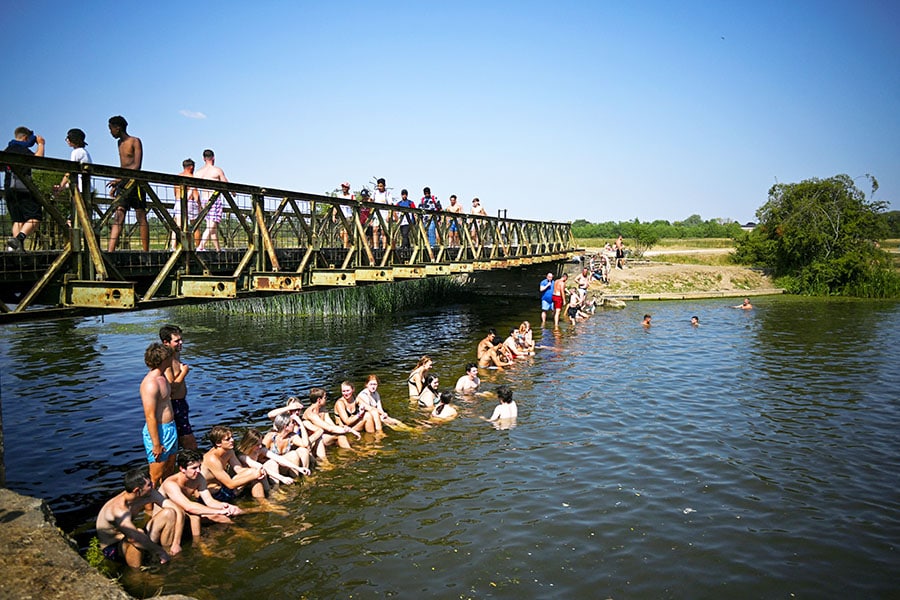
UK breaches 40 degrees Celsius for first time
At least 34 locations in Britain beat the previous record of 38.7 degrees Celsius set in Cambridge, eastern England, in 2019
 Bathers cool down in the River Thames, during a heatwave, in Oxford, Britain, July 19, 2022. Image: Dylan Martinez / Reuters
Bathers cool down in the River Thames, during a heatwave, in Oxford, Britain, July 19, 2022. Image: Dylan Martinez / Reuters
London, United Kingdom: A punishing heatwave fuelling ferocious wildfires in western Europe pushed temperatures in Britain over 40 degrees Celsius (104 degrees Fahrenheit) for the first time on Tuesday and regional heat records tumbled elsewhere.
Grassland fires erupted on the edge of London, with one forcing the evacuation of 14 people as farm buildings, houses and garages were consumed by the flames.
"I was sunbathing in my garden and then a massive black cloud came across," said Ciar Meadows, a 30-year-old housewife who had to leave her home in the town of Wennington.
"Within an hour it spreads all the way to our house... All of our cars have gone."







